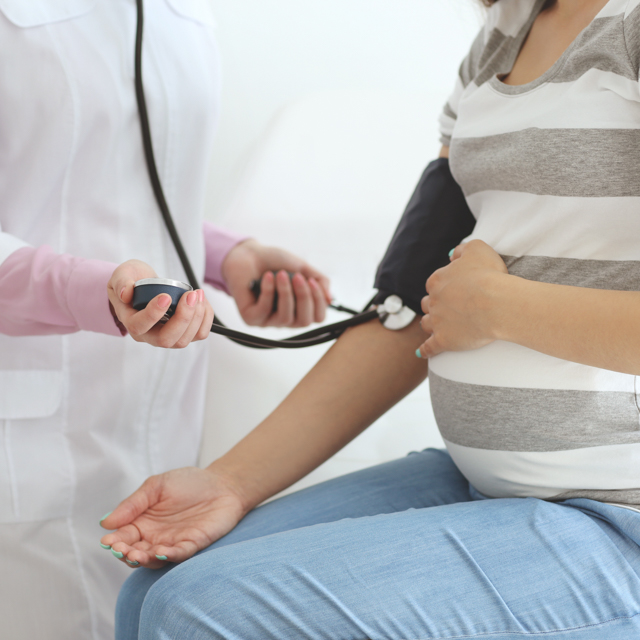Planning for pregnancy? Here’s how to start your journey to motherhood.
The first few weeks of pregnancy are crucial to a baby’s development. However, many women don’t even realize they’re pregnant until several weeks after conception. That’s why a little pre-pregnancy planning goes a long way.
If you’re planning for pregnancy, there are steps you can take to help reduce risks for both you and your little one. “Proper health before deciding to become pregnant is almost as important as maintaining a healthy lifestyle during pregnancy,” said Melissa G. Davis, a certified nurse midwife with Vanderbilt Women’s Health. With that in mind, here’s what needs to be part of your pre-pregnancy planning.
See your provider for a pre-pregnancy visit.
“One of the most important steps in planning for pregnancy is a pre-pregnancy visit — often called preconception care — done by your health care provider before you become pregnant,” Davis said. This visit may include a deep dive into your family medical history, an assessment of any possible genetic disorders that could be inherited and a detailed look at your personal medical history, especially for those with chronic illness or those taking daily medications. “All of these steps will ensure you’ll be in your best health when you’re ready to get pregnant,” she added.
Stop smoking.
If you’re a smoker, stop smoking now (and encourage your partner to do so, as well). “Studies have shown that babies born to mothers who smoke tend to be born prematurely, are lower in birth weight and are more likely to die of sudden infant death syndrome,” Davis said. The same risks apply to women with exposure to secondhand smoke, and there may also be dangers from “thirdhand smoke” — the chemicals, particles and gases of tobacco left on hair, clothing and furnishings.
Begin a vitamin regimen.
For starters, choose a prenatal vitamin that contains at least 400-600 micrograms (0.4-0.6 mg) of folic acid and take it each day for at least a month prior to becoming pregnant and through the first 12 weeks of pregnancy. Folic acid is found in some green leafy vegetables, nuts, beans, citrus fruits, fortified breakfast cereals and some vitamin supplements, and can help reduce the risk of birth defects of the brain and spinal cord (also called neural tube defects). Some pregnant women, such as those over the age of 35, those with a history of having a previous child with a neural tube defect and those with obesity may need additional folic acid, so it is important to discuss your folic acid needs with your prenatal care provider prior to or early in pregnancy.
Focus on a healthy diet and lifestyle.
In addition to taking vitamins and supplements, be sure you’re eating a balanced diet. “This isn’t just good for your overall health, but essential for your baby, as well,” Davis said. Increase your intake of fiber by eating more fresh fruits and vegetables as well as whole grains, like brown rice and whole wheat. Reduce your intake of sugar-sweetened beverages, and eat less red meat, processed meats and animal fats.
Pre-pregnancy exercise, in combination with a healthy diet, can help reduce your risk of gestational diabetes, constipation and preeclampsia. The American College of Obstetricians and Gynecologists recommends 20 to 30 minutes of moderate-intensity exercise per day on most days of the week.
Avoid harmful substances.
Avoid exposure to alcohol and drugs during pregnancy. In addition, be sure to tell your health care provider of any medicines (prescription and over-the-counter) you’re currently taking. Some may have negative effects on the developing fetus.
Mothers-to-be should also avoid exposure to toxic and chemical substances (like lead and pesticides), and radiation (like X-rays), as exposure to high levels of some types of radiation and some chemical and toxic substances may harm your growing baby.
Practice infection control.
Toxoplasmosis is an illness caused by a parasite called Toxoplasma gondii, which can cause serious illness in, or death of, a fetus. Some people will have flu-like symptoms with toxoplasmosis while others will have no symptoms, so it is best to avoid possible sources as a precaution. To avoid exposure, pregnant women (and those trying to get pregnant) should avoid the ingestion of undercooked meat and raw eggs. In addition, pregnant women should avoid all contact and exposure to cat feces and cat litter.
Listeriosis, caused by a bacteria called Listeria monocytogenes, is another illness that can cause serious illness or death of a fetus. Listeriosis may cause flu-like symptoms as well as upset stomach and diarrhea. To avoid exposure, avoid undercooked meat, lunch meats (unless heated to steaming), unpasteurized milk and cheeses made with unpasteurized milk, and unwashed raw fruits and vegetables.

Expert care for you and your baby
Each pregnancy and delivery is unique and yours should be too. Learn more about how Vanderbilt Health’s obstetrics and maternal fetal medicine teams bring together nationally ranked expertise and personalized care from your first prenatal visit to delivery and beyond.
To learn more, call 615-343-5700 or schedule an appointment online.




